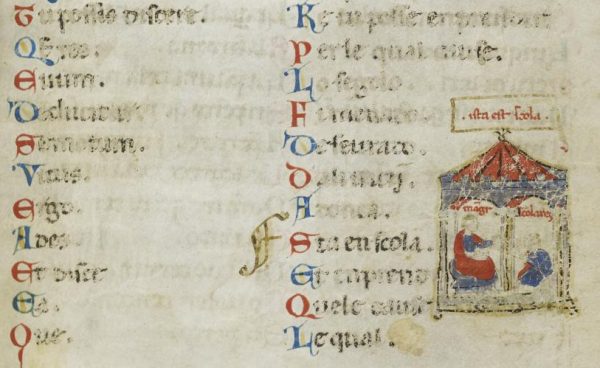The Project
Anyone who has dealt with the manuscript tradition of medieval literature is aware that works very rarely circulated in an autonomous form. Regardless of genre, texts were mainly handed down within larger collections, which could be the product of progressive stratification, either as the result of the activity of a single copyist over the years, or as the effect of a chain of transcriptions of (and additions to) the original collection. In other cases, they were simply the result of changes of ownership, which led to (re-)assemble various materials in new books.

Frequently, however, behind the composition of a miscellany there was a precise macro-textual strategy that aimed to enhance the value of the works it contained through the multiplication of internal references. The focus on such products has enriched our knowledge of the medieval reader’s experience and posed new interpretative challenges to critics.
The MERMAID project (funded within the frame of the call PRIN 2022) aims to delve further into the development and circulation of a particular sort of miscellany, whose exemplars are detectable all over Europe during the Middle Ages: a collection, frequently multilingual, of long and short works, which combines poetry and prose in order to instruct, entertain and amaze the reader, tracing a tempting path to knowledge.
Mainly independent from each other, written in different regions and periods, manuscripts of this sort were each time unique; nevertheless they seem to share the main topics, strategies and public, offering to members of the lay society textual materials partly descended from monastic traditions, and partly brand new, carefully mixed and tailored to the addressee, sometimes enriched also by a remarkable iconographic display; although their focus was mainly ethical and pedagogical, they could also reveal a keen interest in love discourse and worldly seductions.



